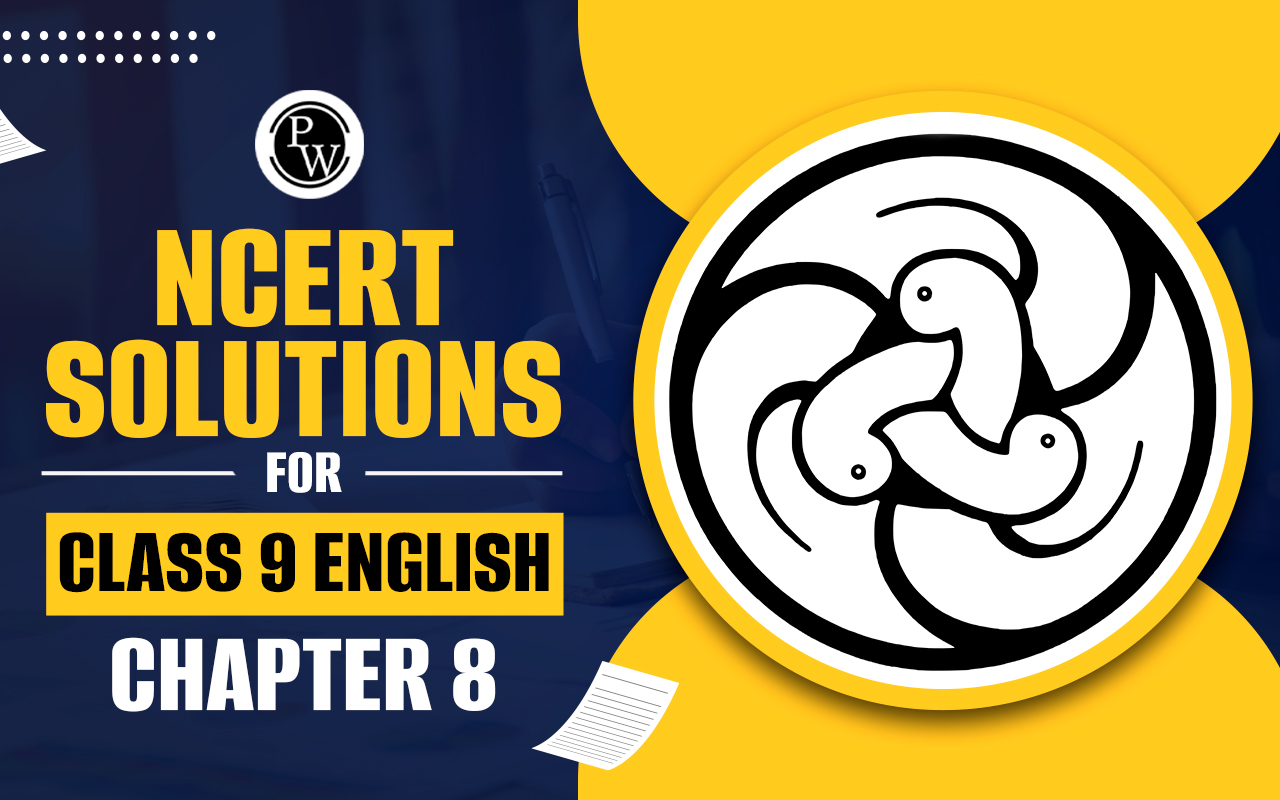
CBSE Class 9 History Notes Chapter 1: Chapter 1 of CBSE Class 9 History: The French Revolution brought an end to France's monarchy. The Declaration of Human Rights, ideas of equality and freedom, and anti-colonial movements in Africa, South America, China, and India are also covered in this chapter. With the help of the Class 9 History Notes of Chapter 1, students can learn effectively and gain a comprehensive understanding of all the topics included in the syllabus.
All the essential subjects are included in the notes, which facilitates speedy revision. Students can improve their test preparation and receive higher exam scores by studying over these CBSE Class 9 History notes for Chapter 1.CBSE Class 9 History Notes Chapter 1 Overview
Following his coronation as Emperor of France in 1804, Napoleon Bonaparte enacted several laws, including those safeguarding private property and establishing a standard weight and measure system based on the decimal system. In 1815, Napoleon lost the Battle of Waterloo. The principal legacy of the French Revolution was the concepts of liberty and democratic rights. People who were colonised reinterpreted freedom to establish independent nation-states.CBSE Class 9 History Notes Chapter 1 PDF
Here we have provided CBSE Class 9 History Notes Chapter 1 for the ease of students so that they can just download the pdf and use it easily without the internet. These CBSE Class 9 History Notes Chapter 1 will help students understand the chapter better.CBSE Class 9 History Notes Chapter 1 PDF
CBSE Class 9 History Notes Chapter 1
Here we have provided CBSE Class 9 History Notes Chapter 1 for the ease of students so that they can prepare better for their exams.The French Revolution
When the early morning hours of 1789 arrived, Paris was in a panic. There were rumours that the King would start shooting at the people. As people began to assemble, they broke into several government facilities to find weapons. The battle resulted in the death of the Bastille's commander, and the inmates were let free. Because the Bastille symbolised the king's autocratic rule, many detested it. People demonstrated against bread's exorbitant price. The French King was put to death as a result of a fresh set of circumstances.French Society During the Late Eighteenth Century
In 1774, Louis XVI became the next monarch of France. France's finances were severely damaged by the war. The thirteen American colonies were assisted by France, under Louis XVI, in gaining their freedom from Great Britain. Taxes were raised to cover ongoing costs, like those associated with operating government buildings and colleges, the judiciary, and the army. In the eighteenth century, France was split up into three estates. Throughout the mediaeval ages, the feudal system was a component of the society's estates. Peasants made up 90% of the population, although very few of them owned the land they farmed. The Church, nobles, and other wealthy third estate members owned sixty per cent. Members of the top two estates, the clergy and nobility, were born with particular privileges. These member groups enjoyed feudal privileges and were free from paying taxes. Every member of the third estate was required to pay taxes to the state. These taxes consisted of taille, a direct tax, and several indirect levies, which were imposed on common goods like tobacco and salt.The Struggle to Survive
The need for food grains increased quickly as a result of the population growth. Because of the inability of grain production to meet demand, bread prices increased quickly. The disparity between the rich and the poor grew as a result of the low wages given to the labourers. Every time a hailstorm or drought decreased the yield, things became worse.A Growing Middle Class Envisages an End to Privileges
Peasants used to take part in uprisings against shortages of food and taxation. The third estate group was now well-off and had access to new ideas and knowledge. The eighteenth century saw the emergence of new socioeconomic classes known as the middle class, who made their fortunes by making woollen and silk fabrics that were either exported or purchased by the wealthier segments of society. They also expanded their abroad trade. Administrative officials and lawyers were examples of the third estate. A person's merit determines their social standing. All of these groups were well-educated and held the view that no social group should be given advantages just by birth. A person's social standing must instead be determined by his or her merit. Rousseau suggested a new system of governance based on a social compact between the people and their representatives. In a similar vein, Montesquieu suggested allocating authority among the legislative, executive, and judicial branches of government. This kind of government was implemented in the USA. To cover the costs, Louis XVI intended to impose additional taxes.The Outbreak of the Revolution
The monarch of France lacked the authority to levy taxes. To approve plans for increased taxes, they had to convene a meeting of the Estates-General, a political assembly that the three estates sent delegates. On May 5, 1789, Louis XVI held a meeting to approve plans for more taxes. There were members of the third estate who were well-educated and rich, as well as representatives from the first and second estates. Every estate was entitled to one vote under the premise. However, advocates of the third estate insisted on one vote for each member. The third estate protestors walked outside as the demand was denied. They promised not to leave until a constitution restricting the monarch's powers was written for France. People had to wait in queue for hours and bread costs increased as a result of the harsh winter. There were rumours that the manor's lords employed brigand bands to destroy the ripe crops. Peasants began stealing stored grain out of fear and set fire to paperwork that listed manorial dues. Nobility escaped their residences. Louis XVI acknowledged the National Assembly and agreed that a constitution would henceforth serve as a check on his authority. On August 4, 1789, the Assembly adopted a resolution ending the feudal system of duties and taxes. The Church's holdings were seized, and tithes were eliminated.France Becomes a Constitutional Monarchy
The National Assembly finished drafting the constitution in 1791, with the primary goal being to curtail the monarch's authority. These authorities were now divided and delegated to the legislative, executive, and judicial branches of government. France adopted a monarchy with a constitution. Unfortunately, not all citizens were able to exercise their right to vote. Instead, voters selected a group of electors who then selected the Assembly. Voting rights were granted to men over 25 who paid taxes equivalent to at least three days' worth of labourer's compensation. The Declaration of Human and Citizen Rights opened the Constitution. The term "natural and inalienable" refers to the set of rights that are inherent to every human being from birth and cannot be taken away. These rights include the right to life, freedom of speech, freedom of opinion, and equality before the law.France Abolishes Monarchy and Becomes a Republic
The National Assembly decided to go to war with Austria and Prussia in April 1792. France adopted Marseillaise as its national anthem. Women took care of their families while males were gone fighting in the war. Since the Constitution of 1791 granted political rights mainly to the wealthier segments of society, a sizable portion of the populace requested that the revolution continue. There were founded political clubs, the most successful of which were the Jacobins. Small business owners, artisans including bakers, watchmakers, printers, and shoemakers, as well as daily wage workers and slaves, were all members of the Jacobin Club. Members of the Jacobin movement began donning long, striped trousers, like those worn by dockworkers. The term "those without knee breeches" (sans-culottes) was used to refer to these Jacobins. The King was taken captive by Jacobins for several hours on August 10, 1792, after they seized the Palace of the Tuileries. All men who were 21 years of age or older were eligible to vote in the elections that were held. On September 21, 1792, the monarchy was dissolved and France was proclaimed a republic. A court sentenced Louis XVI to death on treasonous charges.Did Women Have a Revolution?
Since the beginning, women have been involved actively, which has led to significant improvements in France. Third-estate women had no access to school or job training and were forced to work for a living. At a monastery, daughters of third-estate nobles were permitted to pursue their education. Women who held jobs also needed to take care of their families. Their pay was less than that of men. Women also founded newspapers and political clubs. Among the most well-known women's clubs was the Society of Revolutionary and Republican Women. They called for the ability to vote and run for political office, as well as equal political rights with males. Laws were implemented by the revolutionary administration to better the lot of women. They were allowed to own small companies, divorce became lawful, and education became mandatory. The government shut down women's clubs and outlawed their political activity during the Reign of Terror. In 1946, women in France were granted the right to vote after great effort.The Abolition of Slavery
The eradication of slavery in the French colonies was the most significant social reform implemented by the Jacobin regime. The slave trade started in the seventeenth century. Local chieftains provided the slaves, who were then branded, shackled, and crammed aboard ships for the arduous three-month journey over the Atlantic to the Caribbean. The increasing demand for sugar, coffee, and indigo in European markets was satisfied by slave labour. Slavery in France received little criticism during the seventeenth century. All slaves in French colonial possessions were to be freed by law, according to a 1794 Convention. After ten years, Napoleon instituted slavery. Slavery was outlawed in the French colonies in 1848.Benefits of CBSE Class 9 History Notes Chapter 1
CBSE Class 9 History Notes for Chapter 1 typically cover the topic "The French Revolution." Here are some benefits of using these notes:Structured Content : The notes provide a structured overview of the chapter, summarizing key concepts and events related to the French Revolution. This helps in organizing your study materials and understanding the sequence of historical events.
Clarity and Conciseness : Notes are usually concise, focusing on the most important information from the chapter. This clarity helps in grasping complex historical events and their significance without being overwhelmed by unnecessary details.
Revision and Quick Reference : Notes serve as a handy resource for quick revision before exams or quizzes. They allow you to review the chapter efficiently, focusing on essential details that are likely to be tested.
Preparation for Exams : Whether preparing for class tests, periodic assessments, or board exams, these notes help in preparing effectively by focusing on what's essential and ensuring comprehensive coverage of the chapter.
.CBSE Class 9 History Notes Chapter 1 FAQs
What are the chapters in class 9 history notes?
What is the first chapter of history of class 9?
What was the French Revolution short notes?










